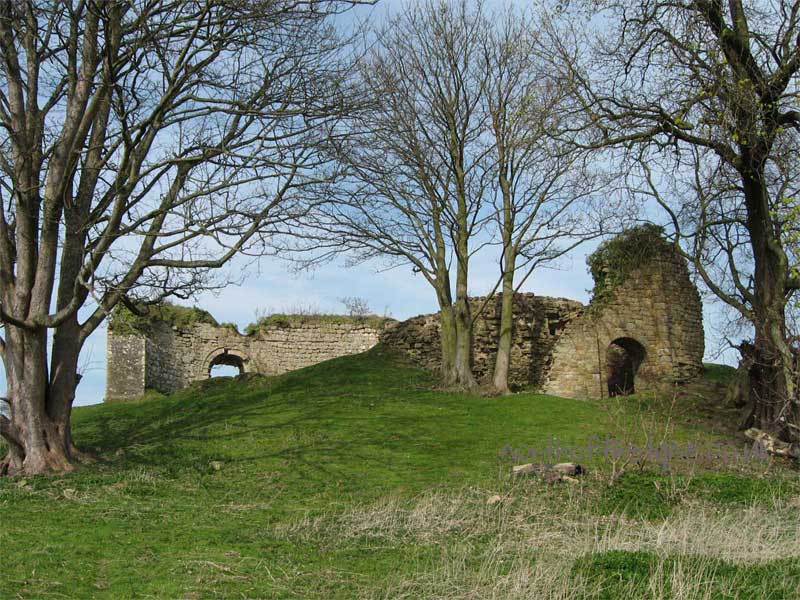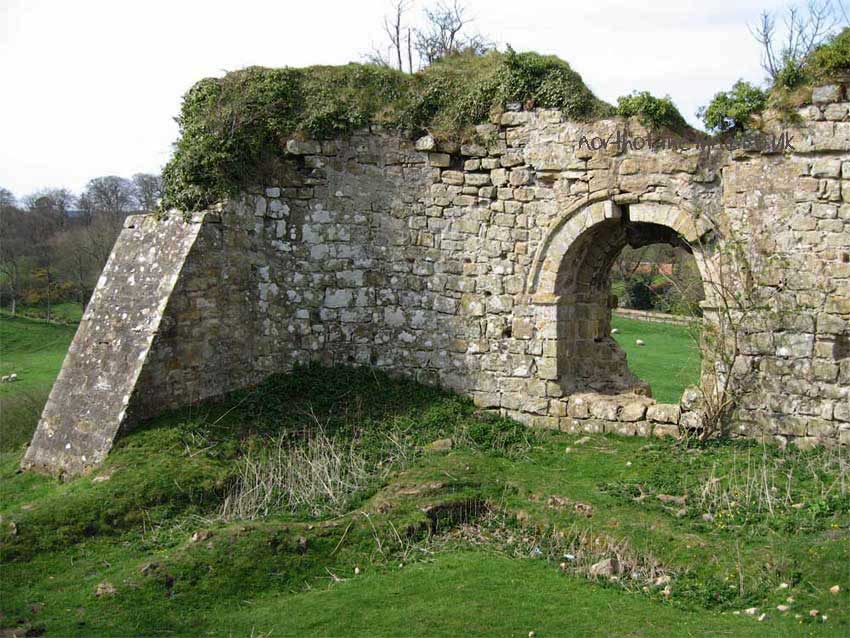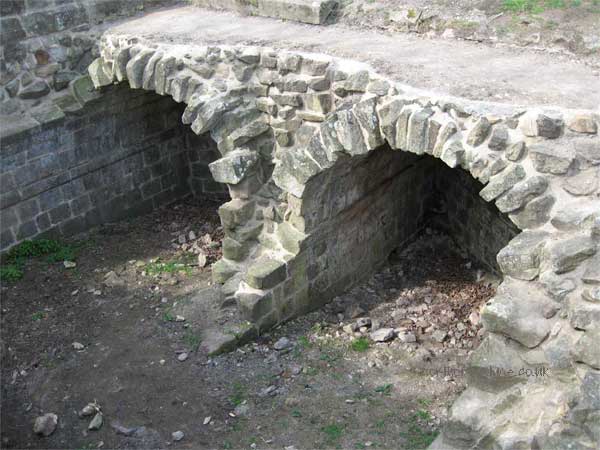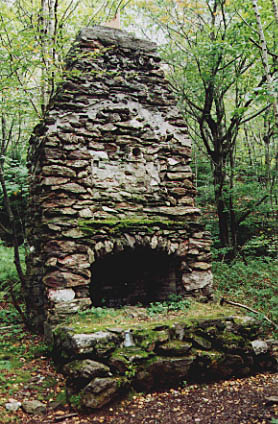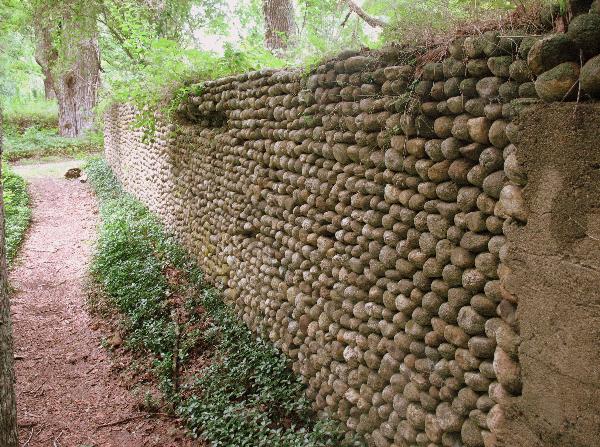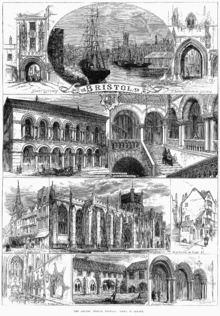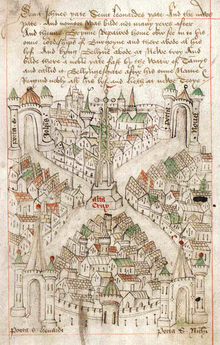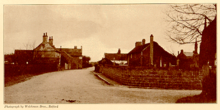During the reign of Queen Elizabeth, Puritan-leaning religious opinions were generally tolerated, but when King
James came to power in 1604 the Church of England again began to root out,
prosecute, and jail those who openly believed the Church needed to be purified
of its false ceremonies, non-Scriptual teachings, ans superstitious
rituals. Across England, small groups began
to separate themselves from their persecuting Churches, to form their own
secret congregations. One such group was
centered not to far from Sherwood Forest. A small village in Nottinghamshire
named Scrooby.
The congregation was led by Richard Clyfton, John Robinson, & Willian Brewster.
By 1606 the group was secretly holding
meetings in Scrooby Manor, where Brewster was employed as the Postmaster.
It was not long, however, before the
authorities were onto them. The group
made the decision to flee England to Holland.

Where they had heard they could
practice their religion without the threat of jail, punishment, and fines. After several failed attempts in 1607, they
all managed to make it to Amesterdam in 1608, and later migrated en mass to
Leiden, Holland in early 1609.
What religious beliefs did the Pilgrims have, that
made them so intolerable to the English authorities? The follow is a list of some of the religious
issues of the day, and the Pilgrims beliefs regarding them.
Predestination.
The Pilgrims believed that before the foundation of
the world, God predestined to make the world, man, and all things. He also predestined, at that time, who would
be saved, and who would be dammed, Only
those God elected would receive God’s grace, and would have faith. There was nothing an individual could do
during their life that would cause them to be saved [or damned], since God had
already decided who was going to be saved before the creation of the world. However, God would not have chosen blatant
sinners to be his elect; & therefore those who were godly were likely to be
the ones God had elected to be saved.
Sacrament & Popery
To the Pilgrims, there were only two sacraments: baptism
and the Lord’s Supper. The other sacraments [Confession, Penance, Confirmation, Ordination, Marriage,
Confession, Last Rites] of the
church of England and roman Catholic church were inventions of man, had no scriptural
basis, and were therefore superstitions, to the point of being heretical The
Pilgrims opposed mass, and considered marriage a civil affair to be handle by
the state [not a religious sacrament].
The legitimacy of the Pope, the Saints, and the
church hierarchy were rejected, as was the veneration of relics. Icons and relious symbols such as crosses,
statues, stain glass windows, fancy architecture, and other worldy
manifestations of religion were rejescted as a form of idolatry. It was rejected of the authority of the
church hierarchy, and of the sacraments, that was the primary cause of conflict
between the pilgrims and the church of England.
Church Organization
The church of the Pilgrims was organized around
five officers: pastor, teacher, elder, deacon, and deaconess [sometimes called
the “church widow”]. However, none of
the five offices was considered essential to the church. The Pastor was an ordained minister whose responsibilities
was to see to the religious life of the congregation. John Robinson was the pastor of the pilgrims,
but was never able to get to America before his death in 1625. The Teacher was
also an ordained minister who was responsible for the instruction of the
congregation. The Pilgrims apparently
never had anyone to fill that position.
The Elder was a lay-person responsible for church government, and he was
also the church’s eyes and ears, assisting the Pastor and Teacher in
admonishing the congregation. William
Brewster was the Elder of the Plymouth church.
The Deacon collected offerings, and attended to the needs of the poor
and elderely. John Carver & Samuel
Fuller both were deacons during their life.
The Deaconess attended the sick and poor, and often played the role of
midwife for the congregation. The
Deaconess of the early Plimouth church is not names, but may have been Bridget
Fuller. The church building itself had no significance
to the Pilgrims, and it was usually called simply the “meeting place” or “meetinghouse”
. The meetinghouse was kept drab, and had no
religious depictions or icons to avoid the sin of idolatry.
Infant Baptism
The Pilgrims believed baptism was the sacrament which wiped away
Original Sin, and was a covenant with Christ and his chosen people (as
circumcision had been to God and the Israelite s , and therefore children should
be baptized as infants. This was in opposition to the Anabaptists, who
believed that baptism was essentially an initiation ceremony into the
churchhood of believers, and therefore could only be administered to believing
adults who understood the meaning of the ceremony. The Pilgrims, on the
other hand, believed that "baptism now, as circumcision of old, is the
seal of the covenant of God," and they felt that groups like the
Anabaptists who did not baptize their infants were depriving Christ's flock of
all its young lambs. They further believed that at least one parent must
be of the faith for the child to be baptized into the church.
Holy Days and Religious Holidays
The Pilgrims faithfully observed the
Sabbath, and did not work on Sunday. Even when the Pilgrims were
exploring Cape Cod, to the Mayflower crew's dismay, they
stopped everything and stayed in camp on Sunday to keep the Sabbaths. The
Pilgrims did not celebrate Christmas and Easter. These holidays were
invented by man to memorialize Jesus, and are not prescribed by the Bible or
celebrated by the early Christian churches, and therefore cannot be considered
Holy days. "It seems too much for any mortal man to appoint, or make
an anniversary memorial" for Christ, taught the Pilgrims' pastor John
Robinson
Marriage
The Pilgrims considered marriage a
civil affair, not to be handled by the church ministers, but instead by civil
magistrates. Marriage was a contract, mutually agreed upon by a man and a
woman. Marriage was created by God for the benefit of man's natural and
spiritual life. Marriages were considered important for two main reasons:
procreation of children to increase Christ's flock; and to avoid the sin of
adultery. Pastor John Robinson taught that the important characteristics
to find in a spouse are (1) godliness, and (2) similarity--in age, beliefs,
estate, disposition, inclinations, and affections. In the
marriage, "the wife is specially required a reverend subjection in
all lawful things to her husband," and the husband is "to give honor
to the wife," as the Lord requires "the love of the husband to his
wife must be like Christ's to his church."
The Pilgrims primarily used the Geneva edition of the Bible, which
contained a number of Puritan-tending footnotes and interpretation. In
response, King James had his own edition of the Bible translated and published
in 1611 for use by the Church of England. The Pilgrims used the
psalm-book written by Henry Ainsworth, which was a more true and literal
translation of the Psalms, whereas the Church of England tended to use the
Sternhold and Hopkins Salter which was more poetic but less true to
Scripture. The Church of England used the "Book of Common
Prayer," whereas the Pilgrims strongly opposed scripted reciting of other
men's prayers. The most commonly-owned book in early Plymouth Colony
(outside of the Bible and psalm book) was John Dod's Exposition on the
Ten Commandments, followed by pastor John Robinson's Observations
Divine and Moral.
all images used from the web







